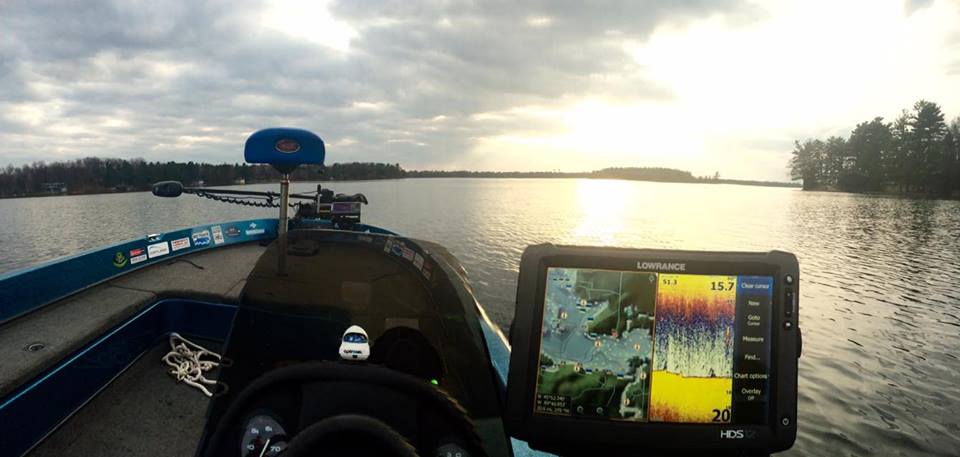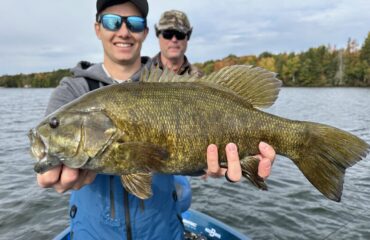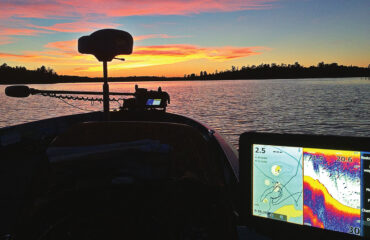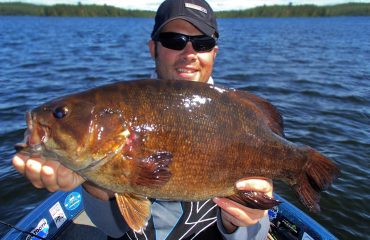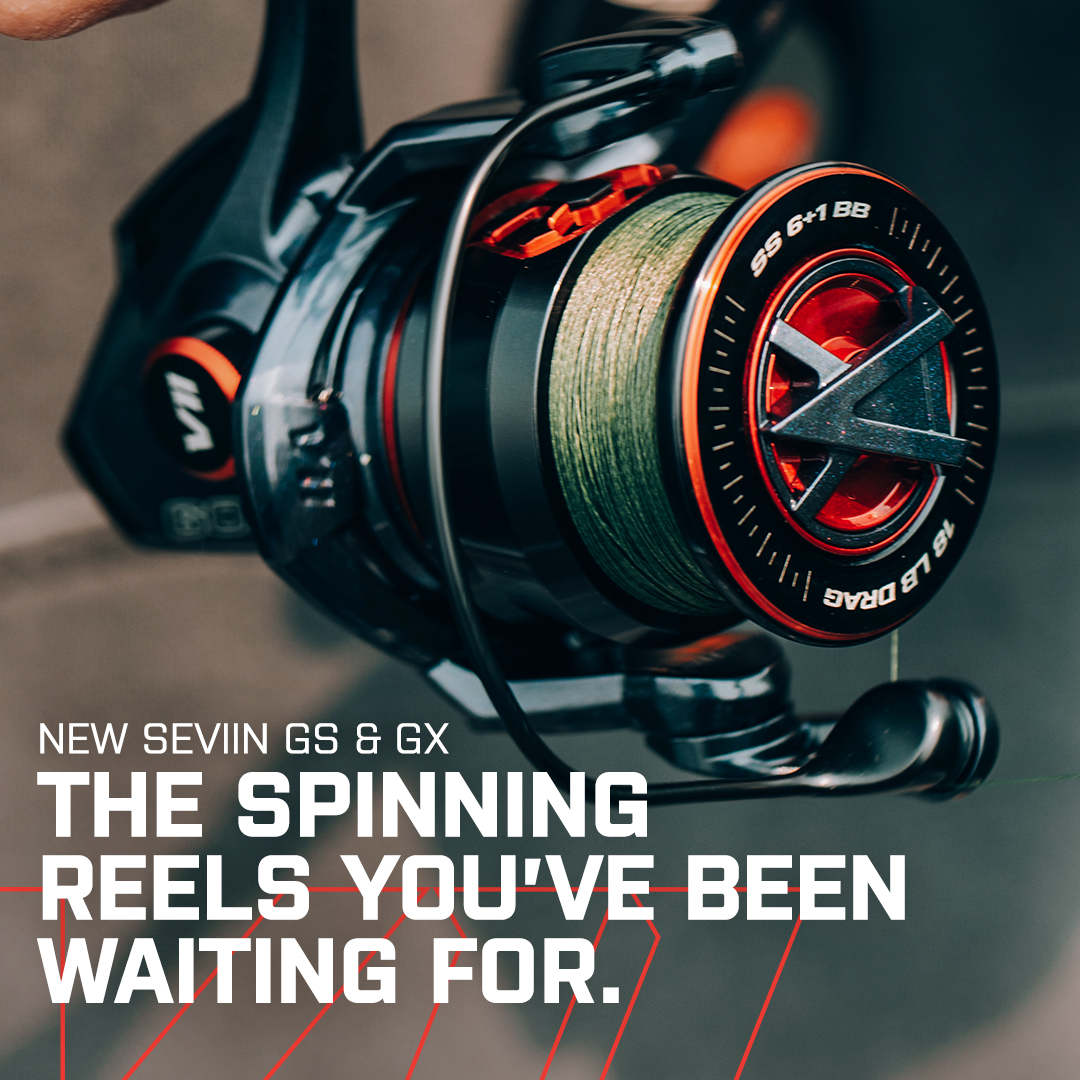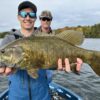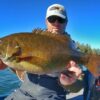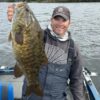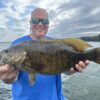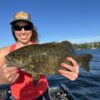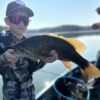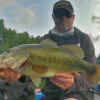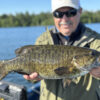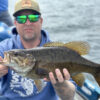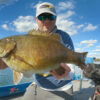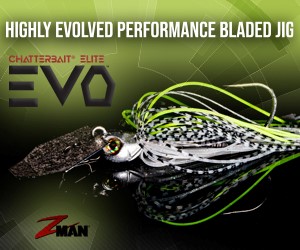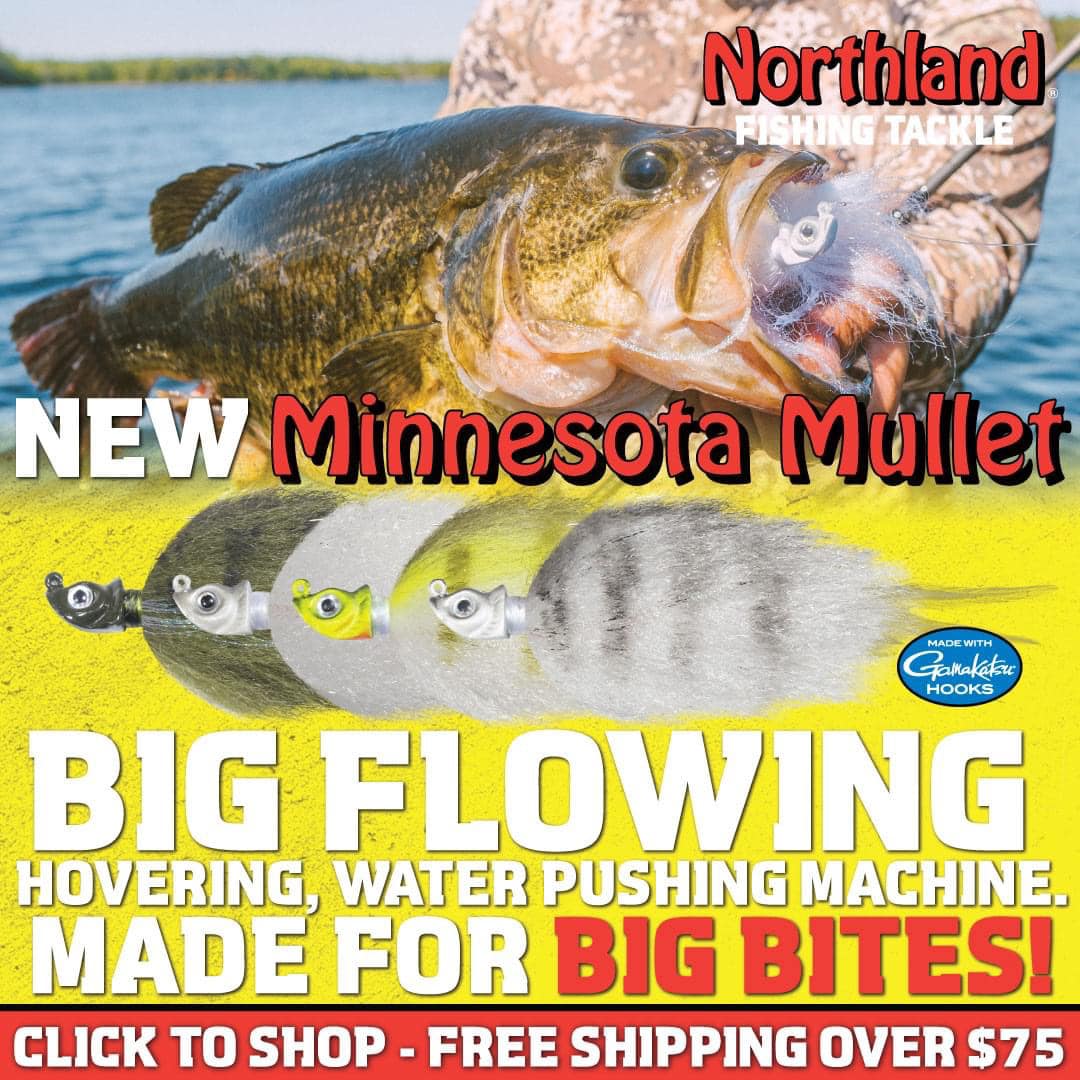Northwoods Bass 2016 Early Season Forecast
By Andrew Ragas
A new fishing season brings new angling opportunities. During the last week, our family’s northwoods cabin opened for the season, signaling that game time is near. My Ranger boat finally hit the water, and a slew of upgrades such as big screen electronics, a front deck extension, and other modifications were added onto it soon after. With a little less than two weeks remaining until Wisconsin’s gamefish season opener and the start of my 2016 bass fishing season, all I can do is patiently wait for the clocks and calendar to turn….. and share some tales of northwoods bass fishing until then.
Spring bass fishing has always been personally challenging, engaging, and exciting for myself and guests throughout the years. More heavyweights tipping the scales between 4 and 8 lbs. are caught and released in May and early June than most months combined. Catching them consistently however, isn’t easy. While their movements from ice out to pre-spawn are generally predictable, it’s usually the unpredictable weather and water temperatures that’s throwing curveballs our way.
This winter was mild and tolerable, but spring, despite an early ice-out, has been meaner and colder. I anticipate a cold spring season that will last until Memorial Day weekend. This could undoubtedly slow the fishing.
There are no shortcuts to consistently catching trophy northwoods bass in spring, but there are certain strategies and methods you can implement to improve your success. The most important order of business is to spend most of your time fishing the right waters.
Springtime brings warming weather and water temperatures. In return, abundant schools of pre-spawn bass invade the shallows to stage for spawn. Specific lake locations that conduct heat are instrumental in scoring early season bass fishing success. The areas that warm quickest are determined by underwater structure and the lake’s geography. Typically, shallow bays with exposure to the southern skies will warm the fastest.
What if spring 2016 turns out to be just as cold and brutal as the weather of May 2015 was, and your preferred lakes aren’t warming and progressing as they should? The spring season delays, and the lack of fish movements follow suit. The aforementioned spots won’t be factors in identifying their locations. So what is a guide to do when spring and ma’ nature aren’t behaving as well as they should?
When this is the case, as it was last year, my fallback option is to spend most of my days fishing river systems and reservoirs for smallmouths. Add in a few largemouth bass trips on backwaters and shallow heavily-vegetated eutrophic lakes for diversity and variety and now I’ve got plenty of productive fishing options to keep myself and my guests busy and entertained.
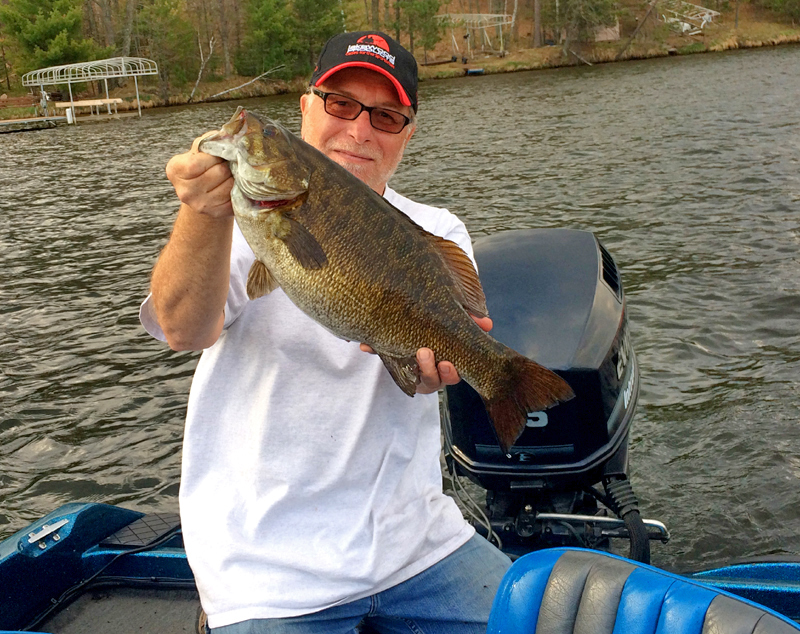
Strategy for Early Season Smallmouths
When my preferred destinations of choice (mesotrophic and oligotrophic natural lakes) aren’t cooperative or ready for spring fishing, I trailer my rigs to the drainage lakes, reservoirs, and river systems.
On these waterways, the best smallmouth fishing of the year takes place almost immediately following ice out, simply because they warm rapidly, have shallower depths, are generally dark water, and are proliferated with inflows and outlets that continuously inject warmer water into the system.
On reservoirs such as Iron county’s Turtle-Flambeau Flowage, and others including the Rainbow and Willow Flowages in Oneida County, there is no shortage of shallow rocky islands, bars, points, creek mouths and inflows, and man-made rip-rap. All are fish magnets throughout spring. If fishing during a high water year, flooded shoreline vegetation and wood becomes a factor as well.
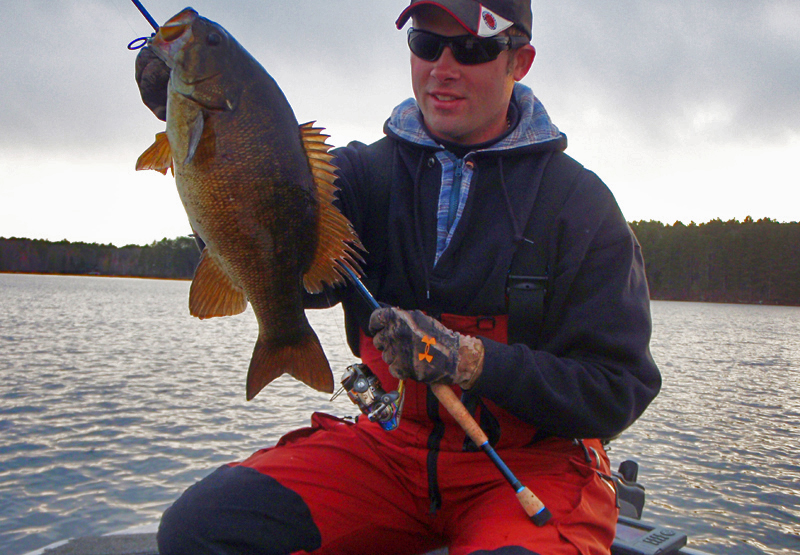
Rivers such as the Wisconsin are always a good guaranteed smallmouth bite in spring, unless flooded (revisit May and June 2013 and 2014 when it was unfishable). Under normal circumstances, 50 to 100 fish days while floating by boat and covering several stream miles, and even pool hopping by wading are the norm. Fish magnets in these environments are laydowns, boulders, rock fields, eddies and current breaks, underwater benthic zones (current breaks along bottom) located along river bottoms.
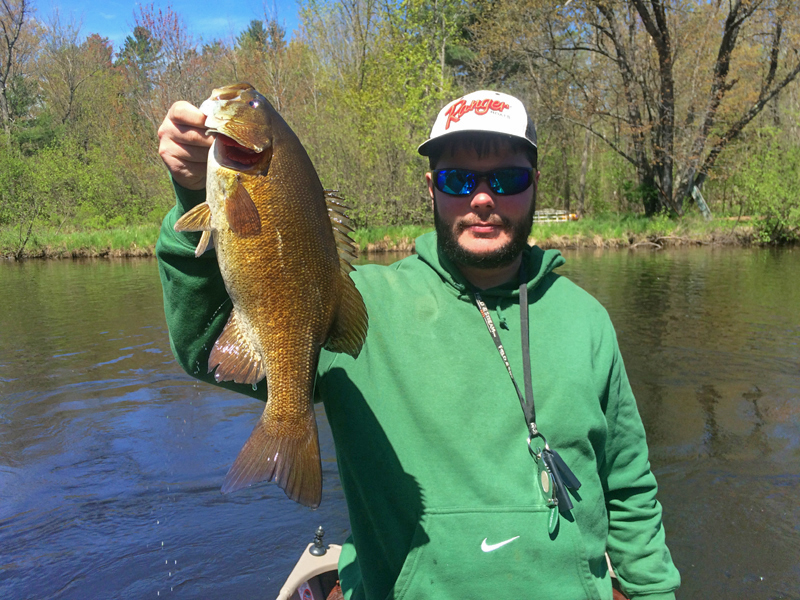
Spring smallmouths on these current-oriented waters are angry and hungry, and rarely conditioned and exploited to angling pressure and in-season harvest. Catching them requires a lot of bank beating and spot hopping. Because we usually have to cover huge expanses of water on flowages and rivers, smallmouths are often enticed by suspending jerkbaits such as Rapala X-Raps and Dynamic Lures J-Specs in yellows and oranges, and crankbaits like the Rapala DT-6 and Crankin Rap 05 in red craw colors. If water levels are high, spinnerbaits such as Freedom Lures, swim jigs, and weedless creature baits will extract fish from the shallows. Once some consistency is had and more fish are located, I can then focus on other early season favorites such as a minnow imitating soft plastic that includes weightless fluke style minnows (Stankx Bait Company Jerx), and dragging hula grubs such as a Chompers Twin Tail.
Strategy for Early Season Largemouths
The fertile backwater systems, marshes, side channels and thoroughfares of large lake chains lead hungry largemouths to an awakening oasis of underwater life. These waterways warm rapidly, and are scattered throughout the landscape of Wisconsin’s Vilas and Oneida counties.
Eutrophic lakes are exceptionally fertile, shallow, warm and heavily vegetated. Seldom deeper than 10 to 15 feet, they are bowl shaped and often lack well defined structure. They tend to have silted muddy bottoms, and may feature boggy and heavily submerged wooded shorelines and tannic stained water. Often, there is no shortage of emergent and submergent vegetation in them either.
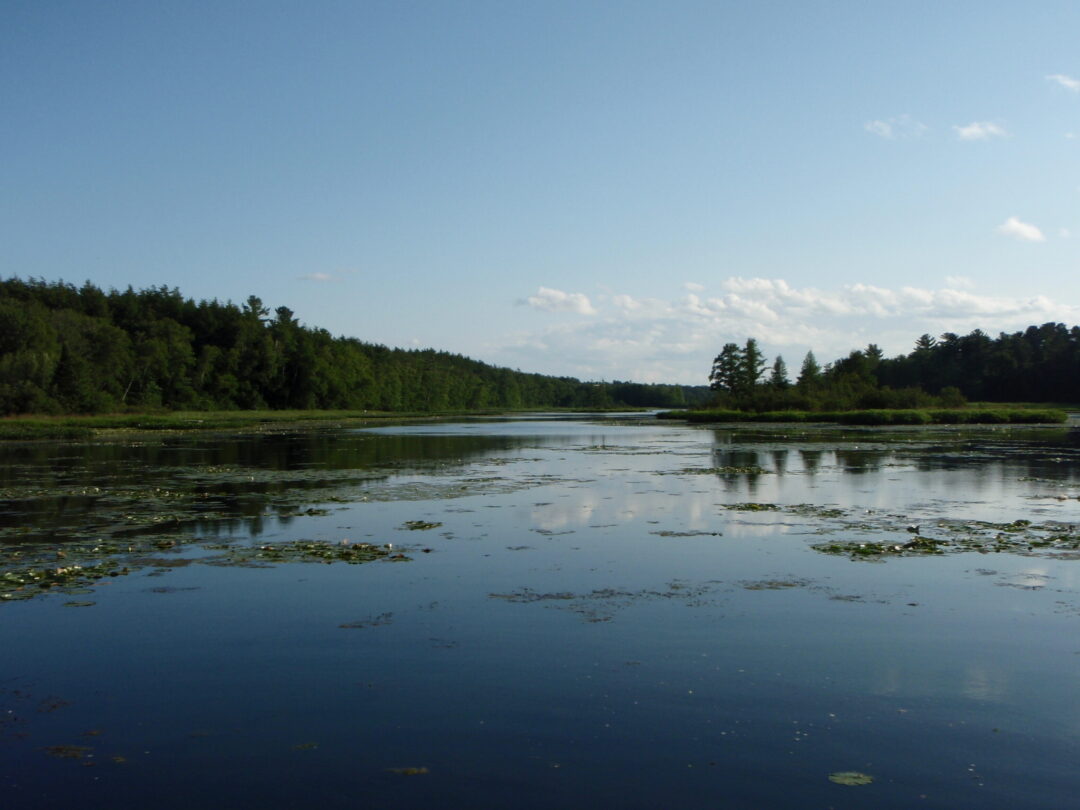
Creeks and rivers, channels and thoroughfares, river oxbows, swamps and marshes, beaver sloughs and ditches lie mostly in obscurity from the mainstream of Wisconsin bass fishing destinations, and that’s alright with us. While the smaller quieter waters fail to attract large numbers of anglers and their oversize watercraft, its warming fertile waters will attract hungry active bass and hold productive fishing through the spawning period.
Overlooked fishing areas like backwaters exist along the outskirts of several popular lake chains where navigation channels and swamps abound. Finding them requires nothing more than google maps and explorations, knowing how to access, knowledge of the fishery, and layout of the terrain. Eutrophic lakes and their inter-connected waterways will usually contain these habitat rich bass fishing kingdoms.
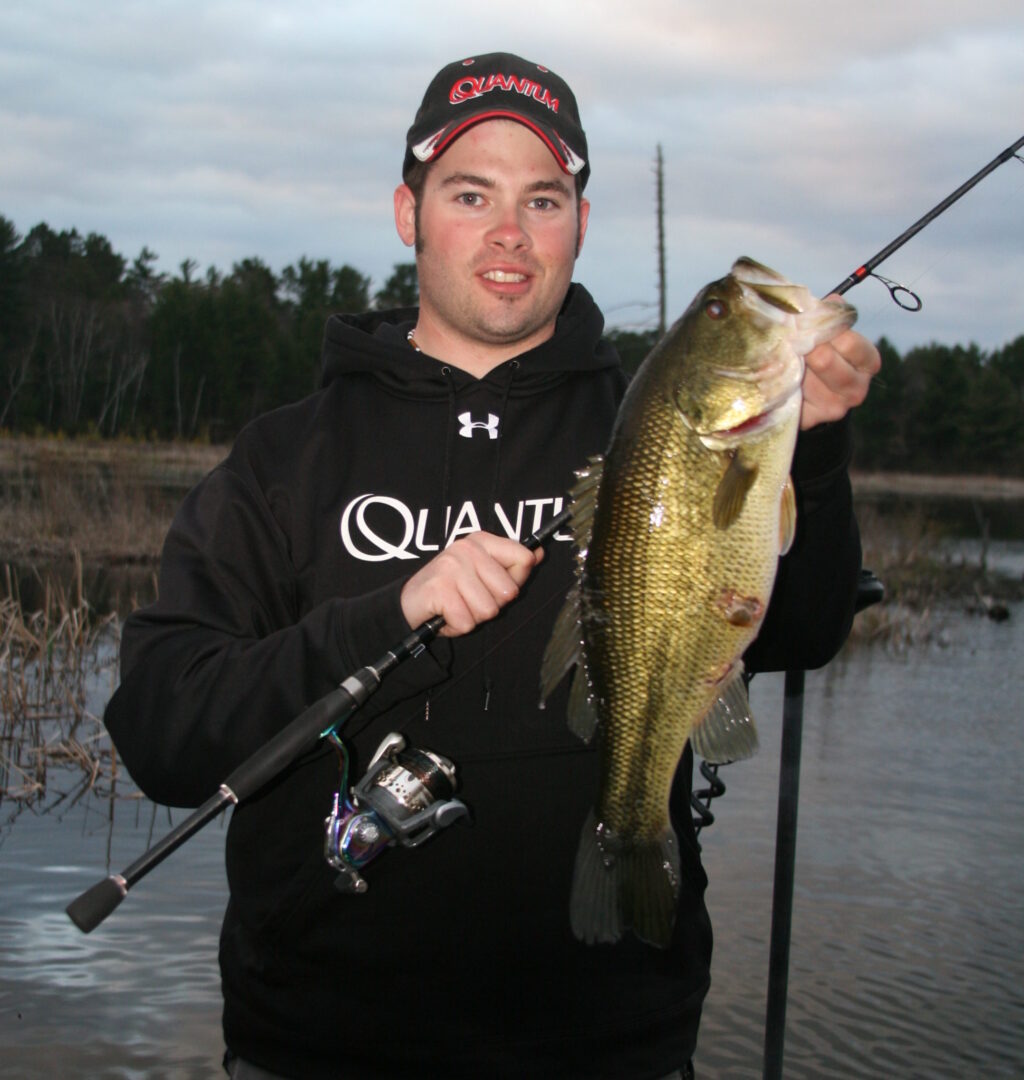
Ripping chatterbaits such as the new Z-Man Freedom Chatterbait, and Strike King Poison triggers exhilarating strikes. Subtler presentations like slow swimming and pumping a swim jig, and weedless Stankx Swimz swimbait through emerging vegetation scores giants. Burning spinnerbaits and lipless crankbaits such as Strike King’s Red Eye Shad and a Rat-L-Trap across the shallows entices aggression. Last but not least, pitching and flipping weedless jigs, creature baits, and slither rigs gets to big largemouths that bury themselves into jungles of vegetation and backwater debris. Want to finesse with spinning gear also? Sure, a weightless Stankx Bait Co. DD Tube, and texas rigged lizard or stickbait can succeed.
Fishing with each of these techniques with baitcasting equipment is about power, aggression and attention. These options are among the most effective offerings for habitat-rich largemouth bass waters with diminished clarity.
The spring season can be either a feast or famine period of season for bass fishing. When faced with the problem of cold waters persisting and not relenting, solutions to counter and save your month of May are available. My strategy and early season gameplan for this is simple, and it’s entirely focused on fishing waters that warm the fastest.
[su_divider top=”no” divider_color=”#CCA622″ size=”2″]
Schedule Your 2016 Bass Fishing Adventure Today!
Welcome to northern Wisconsin’s comprehensive bass fishing resource and guide service, Northwoods Bass Fishing Adventures – with your host, Andrew Ragas. This fishing informational resource and guide service exclusively specializes in the pursuit of smallmouth bass (and largemouth bass) on Northern Wisconsin’s inland waters of Vilas, Oneida, Iron, and Forest Counties.
Based in Minocqua, Wisconsin, we are Northern Wisconsin’s premier resource for world-class bass fishing information, education, entertainment, conservation, and angling instruction. Our guide service operates and thinks differently by focusing on one single species, with emphasis on seminar styled learning and angling approach. We are the only Wisconsin bass fishing guide service and information resource of its kind, offering bass specialty trips only from second Saturday of May through second Saturday of October.
With a mandatory 100% catch & release policy, Northwoods Bass hosts a variety of bass fishing trips that includes trophy hunts, numbers days, technique-specific days, lake-learn sessions, pick a town to fish at, river float trips and wilderness lake trips, and more. We will cater your requested outing to the type of fishing experience you’d like.
You will be aboard my 18 foot Ranger 681VS deep-v that has a bass boat layout, powered by a 115hp Evinrude outboard. My watercraft is outfitted with state of the art high-definition Lowrance electronics, and a wireless MinnKota Terrova trolling motor. In order to maintain an environment for comfortable fishing and ample deck space, and a hands-on seminar style lesson, we prefer hosting up to 2 anglers at a time.
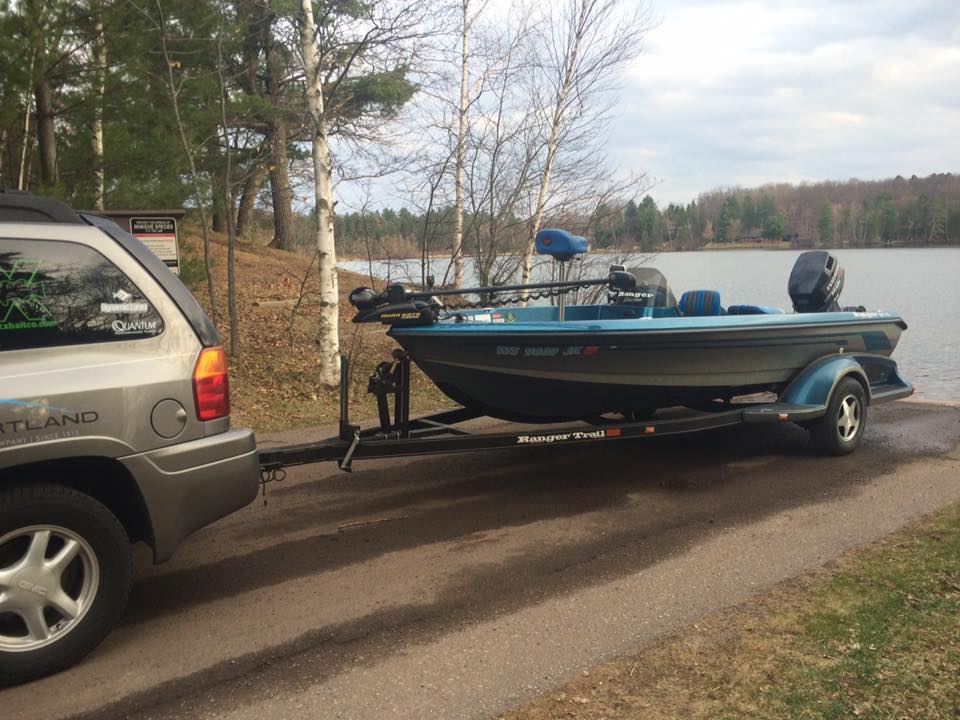
Please contact us by phone or email to inquire about a trip. Full and Half Day bass fishing trips are available from second Saturday of May through second Saturday of October. Thank you very much for considering our services and hopefully we fish together.
andrew@northwoodsbass.com | (708) 256-2201
May 2016, Open Dates & Availability
May: 16, 17, 18, 19, 20, 23, 24, 25, 26
June 2016, Open Dates & Availability
June: 6, 7, 8, 9, 10, 14, 15, 16


